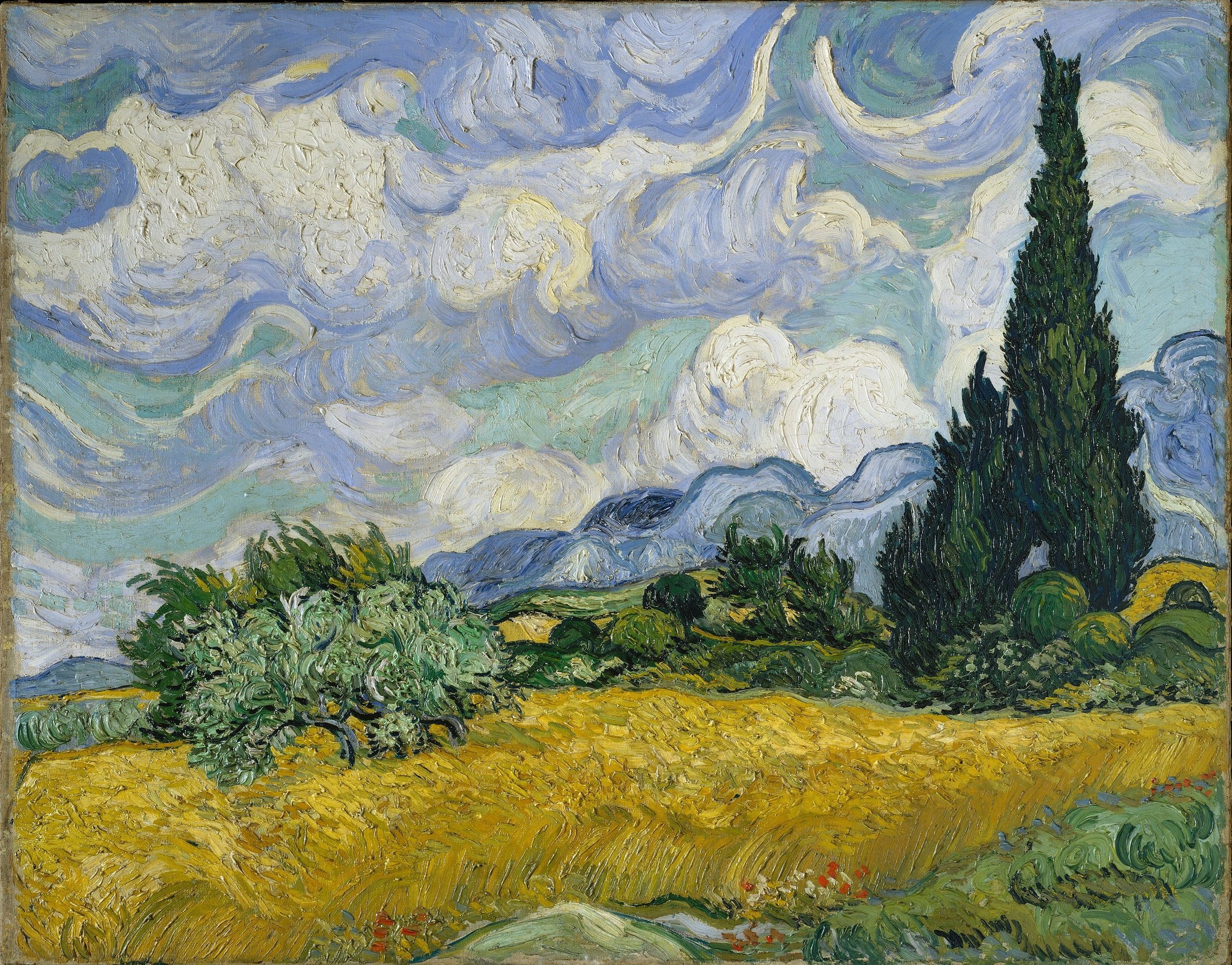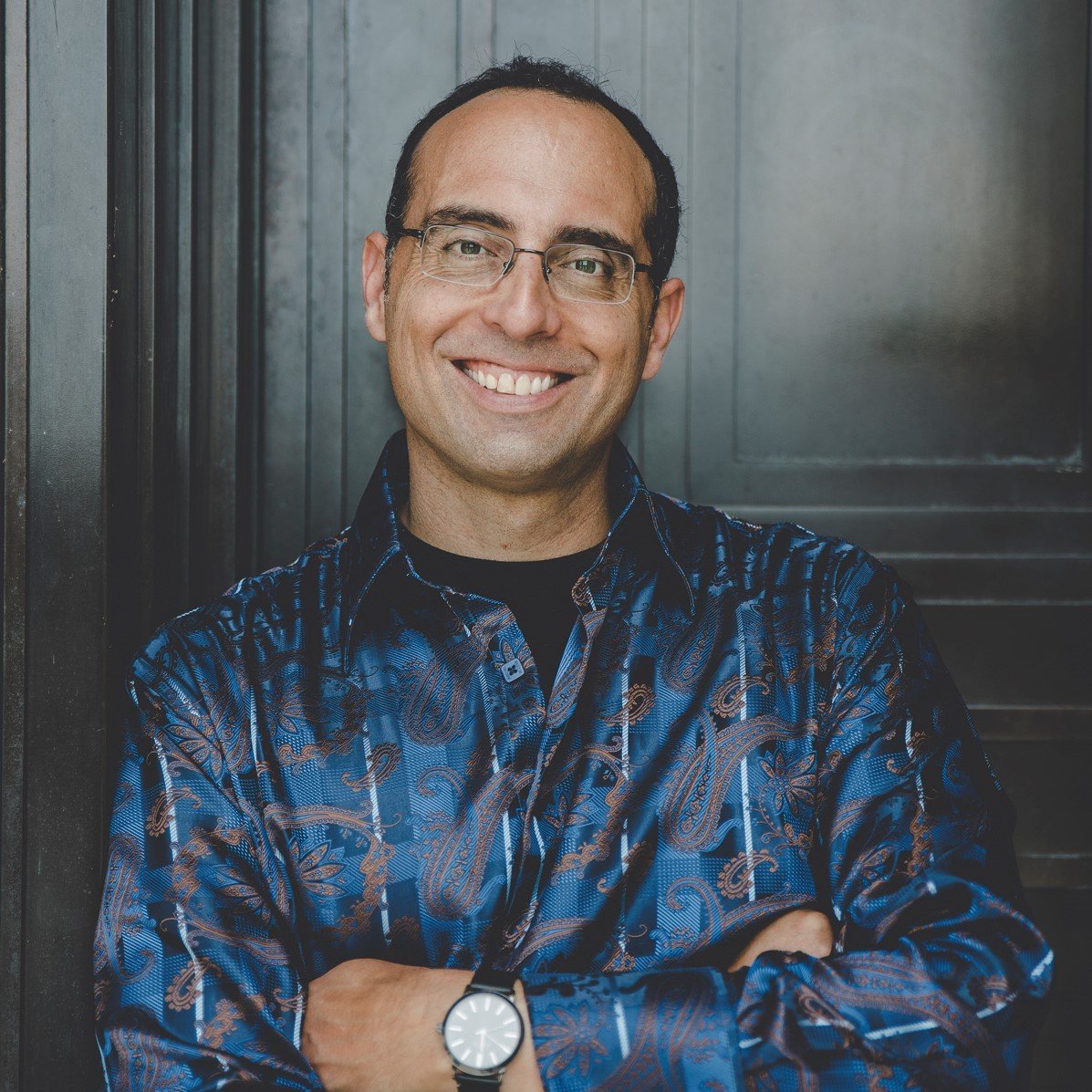An Interview with Philip Metres: Part I
I can’t say exactly when it was that I first met Philip Metres. When I was a student at John Carroll University in Cleveland, Ohio, he was less someone you met, and more someone you ran into. By which I mean that he was everywhere. He taught creative writing workshops as a professor in the English department and organized peacebuilding trips to Ireland as director of the Peace, Justice, and Human Rights Program. He sponsored Writers in Residence, a service program that teaches creative writing to youth who are incarcerated; he organized poetry readings; he was involved with Campus Ministry. He could be found playing basketball at the gym, or bringing a guitar to class to sing Neutral Milk Hotel’s “In the Aeroplane Over the Sea.”
And somehow, in all of that, he found time to write poems.
I noticed as an undergrad that Phil always had a small notebook and a writing utensil with him. He was constantly jotting things down (and when he wasn’t he had a nifty habit of pen spinning that gave the impression that he was born with pen in hand). It must be this approach to the world—with pen in hand—that has enabled him to write so prodigiously over the last two decades. Since 2001, Metres has published over fifteen books and chapbooks, including his most recent works, Shrapnel Maps (2020) and The Sound of Listening: Poetry as Refuge and Resistance (2018). He has been awarded the Guggenheim Fellowship, the Lannan Fellowship, two NEA fellowships, three Arab American Book Awards, the Adrienne Rich Award for Poetry, and the inaugural George W. Hunt, S.J. Award for Excellence in Journalism, Literature & the Arts. And, as you’ll learn below, Metres was even invited to the Vatican earlier this year, along with the international delegation of Catholic writers, for an audience with Pope Francis.
Vincent van Gogh, Wheat Field with Cypresses (1889)
Metres and I had a wide-ranging conversation, conducted by email over the course of several weeks, about all manner of things: the way his poems respond to war and conflict (like the ongoing conflict between Israel and Palestine that erupted again during the course of our email exchange), the influence of social media and artificial intelligence on contemporary poetry, the feeling of walking in the footsteps of Van Gogh in Arles, France, and much more. I hope that, like me, you’ll be encouraged and challenged by his generous words.
Anthony Shoplik: Much of your work—your poetry, your teaching, your scholarship—deals with the fundamental rifts and conflicts of the last 100 years: Israel-Palestine, the Troubles, the War on Terror, US human rights abuses at Abu Ghraib prison. Why do you think your work is drawn to these intractable conflicts? What have you learned from thinking and writing about them? Where do you find the endurance—emotional, intellectual, spiritual—to keep exploring many of humanity’s most broken places?
Philip Metres: Some time ago, after a conversation we had, a poet said that he felt he ought to write more political poetry. I told him to write the poetry that he must, not what he felt he ought to do. Isn't life difficult enough? Can't poetry just be beautiful and sufficient in itself, a refuge? What draws me to my subjects is not primarily a sense of moral duty or political analysis. It's deeply personal for me, the threads of which vibrate into my earliest memories as a child, and that which I don't remember but harbor in my body—that my father was a Vietnam War veteran and the child of Lebanese refugees and immigrants, that my mother's ancestors include Irish famine migrants.
Alongside those primal migrations and traumas was familial love and care, and a structuring belief (from my Catholic upbringing) that everyone has inherent dignity and are part of the same human family. When our country went to war with Iraq in 1991, I remember in college seeing the media' s grotesque fawning over military domination and killing. The dead looked like my cousins. They are, in some broader sense, all of our cousins, but the family resemblance haunted me. Meeting and hearing the stories of Iraqis, Palestinians, Irish (and I could add, in another way, the masses of people in the Russian world) meant, invariably, to bear secondary witness to their struggles for dignity, rights, and justice. Without delving too deeply into self-psychoanalysis, I could say that my own childhood both wounded me and equipped me with empathy. Empathy is a dangerous drug, of course, that can narcotize us into inaction, but, if dosed out properly, can also spur us into action.
AS: Your use of the term “human family” brings to mind “[Family],” a poem from your most recent book, Shrapnel Maps, which I think about often. I bet most people have probably experienced something like the scene you depict there: an audience member and a speaker having an impassioned exchange (read: yelling at each other) about a high stakes political issue, while the rest of the audience sits nervously, unsure of what to do. Here and elsewhere, I notice in your work an effort not to settle such issues neatly. Why is that? Sometimes I sense within myself—and those around me—a resistance to attempts to hold opposing worldviews in tension. (“Bothsidesism” is a term that comes to mind.) What would you say to a reader who wants to resist that tension? And what would you say to the other kind of reader: the one attracted to endless complication?
PM: The key to that poem is that our pain—the pain of each of the three participants—incapacitates them to see and to act as if the other(s) actually exist as people like them. Pain blots out subjectivity, paralyzes agency. And we live in a time where there’s a very low tolerance for ethical complexity. The hot take, the call-out, the light-up—they’re pleasurable actions but mostly for ourselves and the like-minded. Shrapnel Maps was a difficult book to write, not only because it is dealing with complex realities, but also because I anticipated that those passionate about Palestine and Israel would be disconcerted by it. I’m not happy about it. When people—not only individuals, but whole groups of people have trauma—a traumatized narrative sometimes makes it even harder. It’s hard enough to be human ourselves, and to grant the other—particularly when we perceive the other as actively harming us or our community—may be too much to ask of anyone. I wish it were otherwise. So I get it, if there is a reader for whom it’s too much to bear. But that’s the place of literature, to imagine and abide in the place where it’s impossible to live, and yet people live there every day.
Shrapnel Maps is asking its readers more than to refuse the “single story,” but to imagine a reality where everyone is connected in a web, which vibrates whenever anyone in it is affected. I hope the book doesn’t succumb to simple bothsidesism, that falsely equates two sides whose power is clearly asymmetrical. Israel is a state of vast power and wealth, though its citizens are clearly also vulnerable. Palestine doesn’t even exist as a state entity, and its people are subject to military rule and apartheid conditions. So the question becomes: what is the dream in which these two peoples, who exist side-by-side, can live together as equals in a shared future? It seems impossible now, but history is full of examples where the impossible has happened. And for the bystander (whom the “I” exemplifies in “Family”) must come to a crisis, be wounded not only into witness, but into speech, into some kind of action.
AS: I initially asked the previous questions about conflict, the human family, and high stakes political issues in late September. But now it’s October 9th, and the world feels different in light of the tragic loss of life in Israel and Palestine in recent days. Would you like to add anything to what you’ve already shared with us?
PM: This is what I wrote this morning and shared with others: My heart breaks for the violence happening in Israel and Palestine, yet I know that my heart breaking—and my saying my heart is breaking—won't change the reality that people are facing there. I'm thinking of the people I know, in Gaza, in Israel, in the rest of Palestine, wishing for their safety (you know who you are). I hold onto the fact of each person's fundamental dignity and sacredness, that no one deserves death, injury, a futureless future. Palestinians and Israelis deserve to live, in justice and peace. But there is no future without the other. I hold onto the fact that the U.S. is also deeply implicated in what's happening, not just the Netanyahu government or Hamas—the structures of violent dispossession extend through the halls of Congress. The silence of our corporate media, of our leaders, about what led to this, is part of the violence. No one deserves to live in terror. No one deserves to live in a hopeless prison. There is no future without the dignity of the other. There is no future without dignity for each other.
Part II of this interview continues here.
Anthony Shoplik is a PhD candidate in the English Department at Loyola University Chicago. His current research explores the confluence of U.S. environmentalism and conservationism with American accounts of national and racial identity.
Philip Metres has written numerous books, including Shrapnel Maps (Copper Canyon 2020). Winner of Guggenheim, Lannan, and NEA fellowships, he is professor of English and director of the Peace, Justice, and Human Rights program at John Carroll University, and core faculty at Vermont College of Fine Arts MFA.

